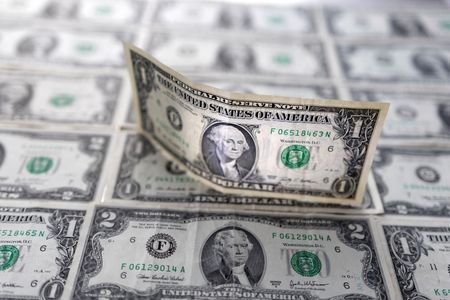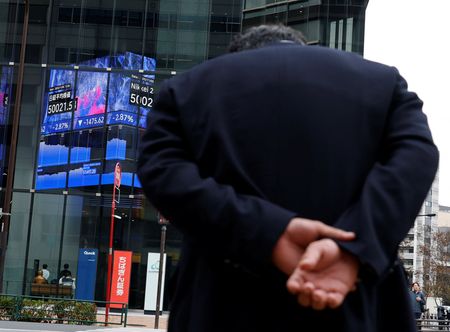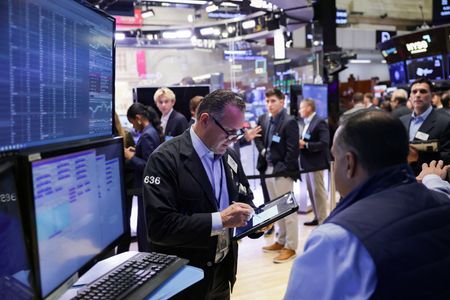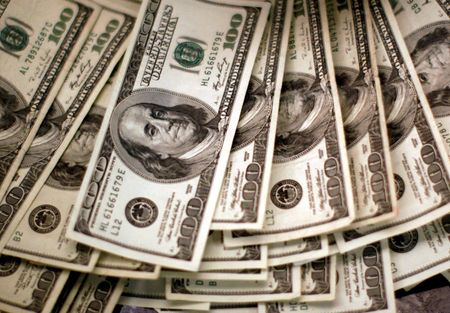By Kevin Buckland
TOKYO (Reuters) -The risk aversion that blew through foreign-exchange markets in Asia on Wednesday all but dissipated by the European morning, with the safe-haven yen erasing gains and Antipodean currencies up.
The Swiss franc remained higher, and the U.S. dollar held firm throughout the session after touching the highest since April 1 at the very end of Tuesday trading.
The risk-sensitive Australian dollar recovered from a 0.5% slide to a multi-week low and was last marginally higher on the greenback.
The New Zealand dollar rebounded from a seven-month low hit after the unemployment rate printed at the highest level since 2016, and was last up 0.3%. The New Zealand currency briefly dipped to a 12-year trough versus the Aussie.
However, sterling struggled to make any headway, remaining pinned near a seven-month low after British finance minister Rachel Reeves on Tuesday hinted at broad tax rises in her budget later this month.
The risk-off wave that hit Wall Street overnight swept through Asian equity markets, triggering losses of as much as 4.7% for Japan’s Nikkei and as much as 6.2% for South Korea’s KOSPI. U.S. losses were triggered by a tech-led sell-off as worries about stretched valuations spiralled into a rush for the exits.
“I’d argue that the best framing of yesterday’s trade is one of the market simply taking a bit of a pause for breath, as opposed to one where the tide is decisively turning against the bulls, who remain in overall control,” said Michael Brown, senior research strategist at Pepperstone.
“Dips remain buying opportunities in my mind.”
The yen gained as much as 0.5% at one point before last trading flat at 153.62 per dollar. The franc climbed 0.3% versus the dollar at one point, but was last 0.2% stronger at 0.8090 franc per greenback.
The dollar index – which measures the currency against the yen, franc, euro, sterling and two other peers – was steady at 100.16, after earlier shooting as high as 100.25 at the end of Tuesday’s session.
The dollar has been supported both by haven flows and declining bets for near-term Federal Reserve interest rate cuts amid deep divisions among the Fed board members on the correct path for policy.
Investors and policymakers have also had to contend with a record-long government shutdown, which has all but halted the flow of macroeconomic data. This has put a lot of focus on the private ADP payrolls later on Wednesday.
The dollar was little changed at $1.1486 per euro after rising 0.3% in the prior session to reach a seven-month top.
Sterling was stable at $1.3026 following Tuesday’s 0.9% slide.
Leading cryptocurrency bitcoin rose 1.5% to around $101,800 after bouncing back from earlier losses. It slid 6.1% on Tuesday to below $99,000 for the first time since June 22.
(Reporting by Kevin Buckland; Editing by Shri Navaratnam, Sam Holmes and Kim Coghill)










